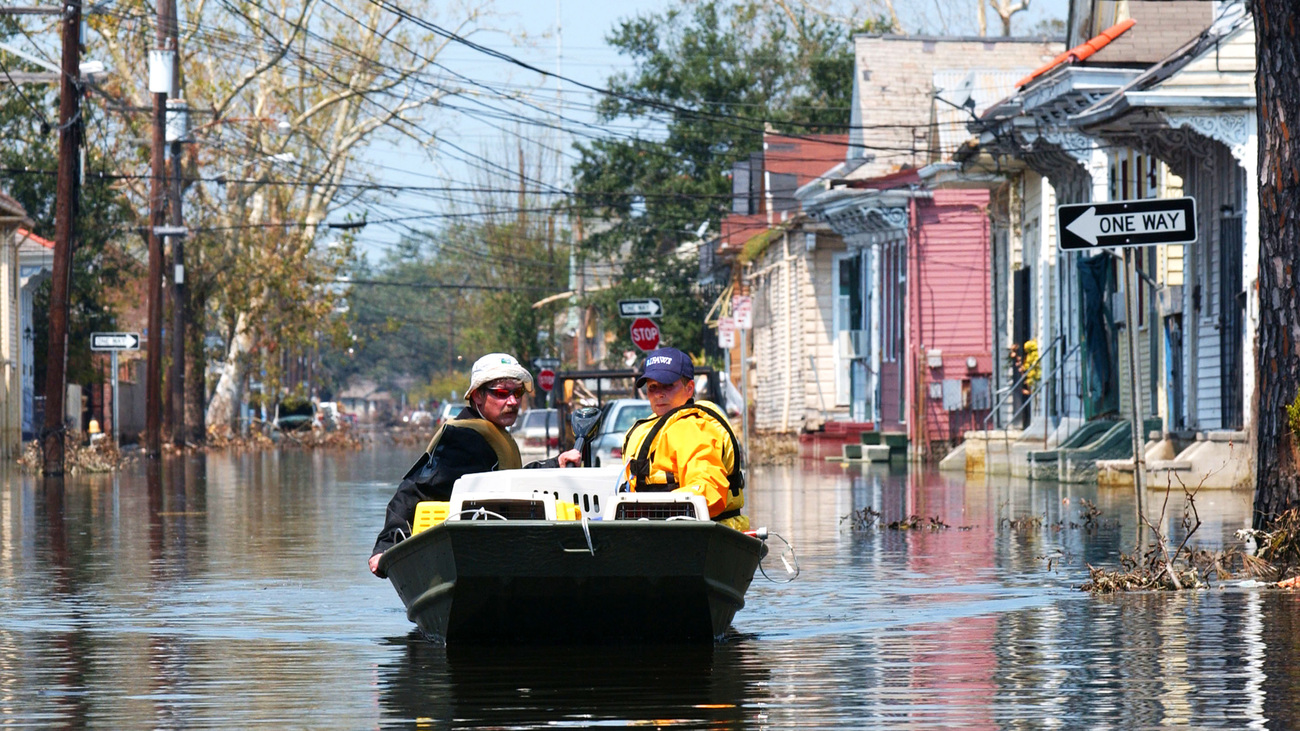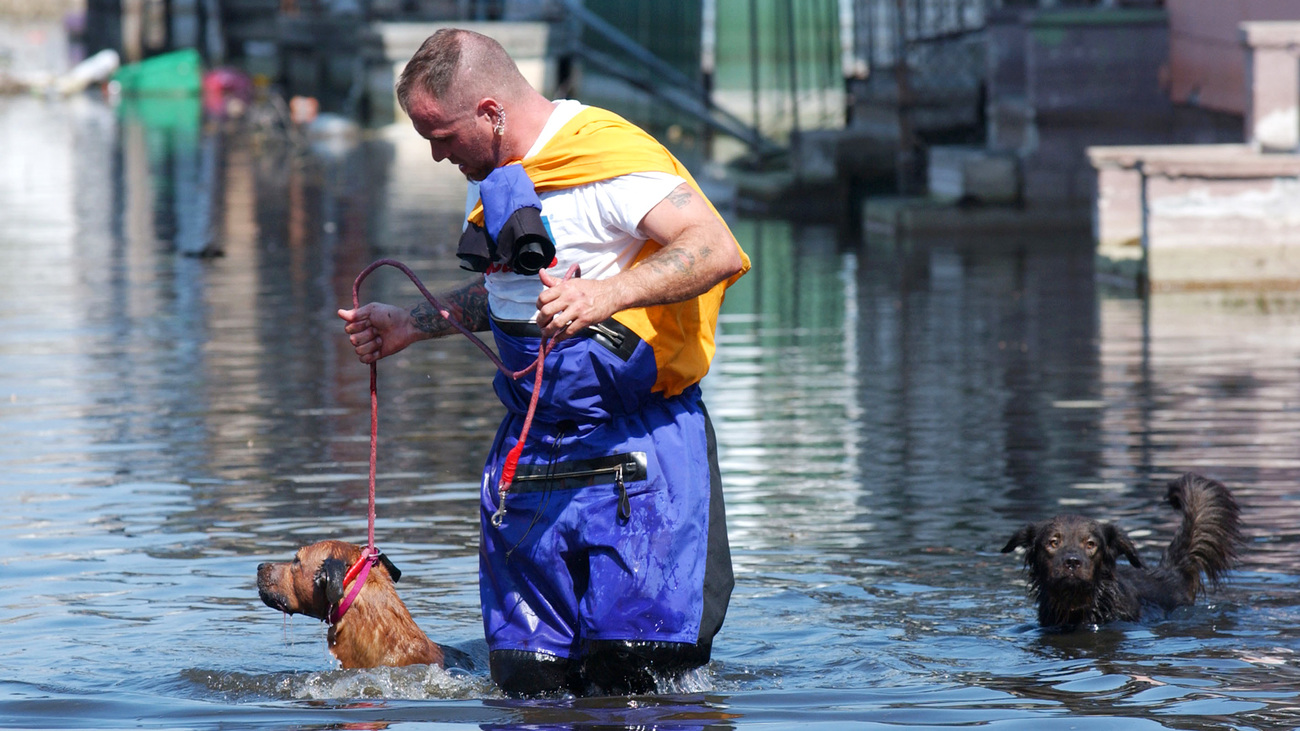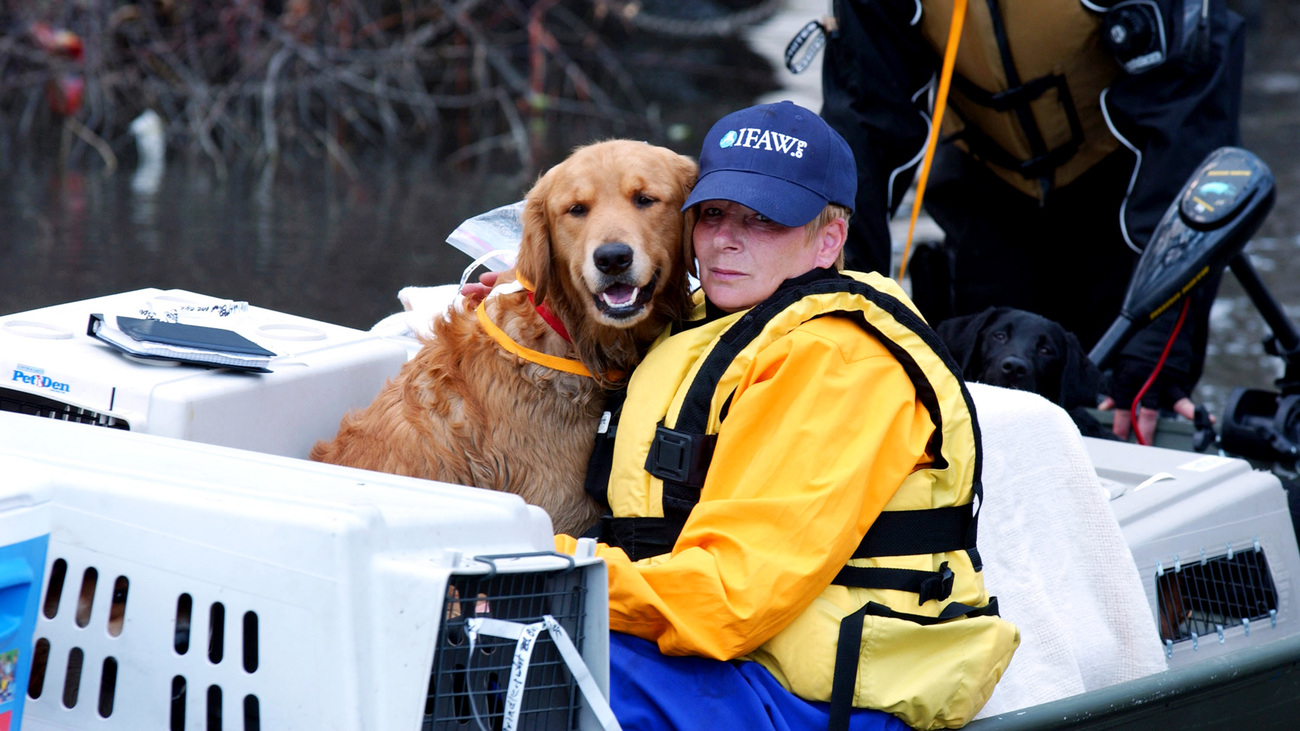Shannon Walajtys
It’s really about connecting with people--their history, their culture, their pride--that's how you grow the relationships between people and the animals in their community.
How Hurricane Katrina shaped IFAW’s disaster response, 20 years later
In 2025, we mark a milestone that is both deeply personal to me and pivotal to IFAW’s history: the 20-year anniversary of Hurricane Katrina and the start of formalizing our Disaster Response program.
Our team still remembers the urgency and heartbreak of those days in 2005. The hurricane devastated communities, displaced families, and left countless animals behind with little hope. It was clear then—as it is now—that animals must be part of disaster response planning. That moment set the tone for everything that followed. Responding to animals and people affected by Katrina helped professionalize our field in the US, shaped IFAW’s unique niche, and inspired us to ensure animals are never forgotten in times of crisis.

While IFAW had responded to catastrophic disasters in the 1990s, Hurricane Katrina marked the birth of our dedicated programme. From that foundation, we have now responded to more than 600 disasters around the world, rescuing and caring for more than 1.2 million animals—from pets to livestock to wildlife.
Along the way, we have trained thousands of responders across every continent except Antarctica, built lasting partnerships with governments and NGOs, and established a model for animal-inclusive disaster planning.
Our work today looks very different than it did two decades ago. Back then, we raced to save lives once disaster had struck. Today, we still respond to emergencies, but our strategy goes further—we help communities prepare for disasters before they happen and grow resilient to their impacts.
IFAW’s skills and dedication have enabled us to respond to hurricanes, wildfires, floods, droughts, earthquakes, tsunamis, volcanoes, and even war zones. Among our many responses, we’ve helped animals and people impacted by:
Each crisis has contributed to our knowledge, shaping a cycle of lessons learned before, during, and after disasters that informs our strategy everywhere we work.

When headlines fade, our work continues. The reason we are effective in an emergency is because of what happens during the rest of the year. We invest in building local capacity and ensure communities have the training and resources they need long before disaster strikes.
In northern Thailand, for example, last year’s extreme floods prompted IFAW to award emergency grants to three shelters. Today, those same partners have evacuation plans and are preparing for the next flood season. With additional support, they’ll be ready to act quickly and protect animals and people alike. This proactive approach—turning last year’s lessons into this year’s resilience—is at the heart of how we work.
Looking ahead, the changing climate will continue to drive more frequent and severe disasters. That’s why we are scaling our efforts—investing in community resilience, advocacy, and local leadership. Through initiatives like IFAW’s Academy of Rescue & Conservation (ARC), which offers several online disaster response training modules and hosts in-person workshops around the world, we’re equipping decision-makers and responders with the tools and knowledge they need to save more lives.

And we don’t do this alone. Our progress over the past two decades has only been possible thanks to the dedication of our partners and the generosity of our donors worldwide who sustain this lifesaving work.
As we reflect on the havoc Hurricane Katrina wreaked upon our country 20 years ago, IFAW’s commitment is clear: animals and the people who care for them must never be an afterthought in disasters. The lessons from Katrina continue to guide us today, shaping our approach to preparation, response, and resilience across the globe.
Here in the US, this anniversary also marks the beginning of National Disaster Preparedness Month —a reminder each September to every community, household, and family that preparation saves lives. As disasters become more frequent and more severe, we encourage you to take steps now: make a plan for yourself, your loved ones, and your animals.
Shannon Walajtys
It’s really about connecting with people--their history, their culture, their pride--that's how you grow the relationships between people and the animals in their community.
every problem has a solution, every solution needs support.
The problems we face are urgent, complicated, and resistant to change. Real solutions demand creativity, hard work, and involvement from people like you.
Unfortunately, the browser you use is outdated and does not allow you to display the site correctly. Please install any of the modern browsers, for example:
Google Chrome Firefox Safari